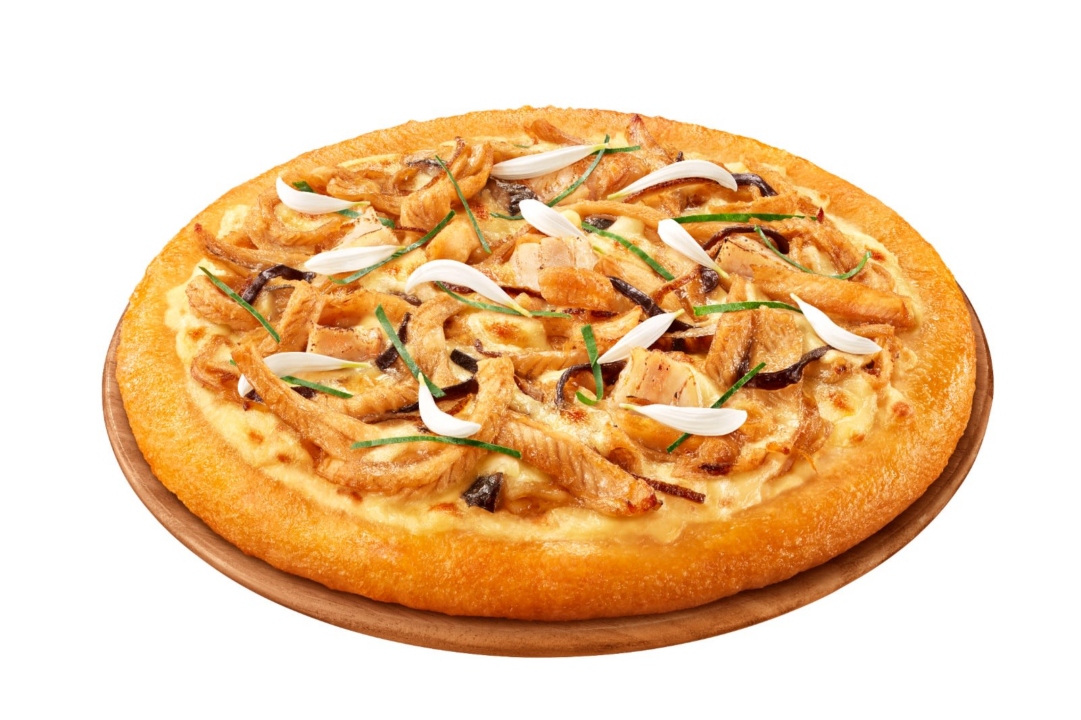Pizza Hut offering snake pizza in Hong Kong
Hong Kong (CNN) — Pizza Hut has teamed up with a century-old Hong Kong restaurant to put a modern spin on a traditional dish, or more simply, snake on a pizza.
The new offering combines shredded snake meat, black mushrooms and Chinese dried ham – all indispensable ingredients of an authentic snake stew and part of the Hong Kong franchise’s marketing plot to generate buzz online.
Some diners in Hong Kong and around southern China have long enjoyed snake stew, especially during the colder months.
According to a saying in the local Cantonese dialect, the best time to eat snake is “when the autumn wind begins to blow” – when they’ve fattened up to prepare for hibernation.
Many believe that snake meat has medicinal properties, improving skin conditions and warming up the body.
A rich culinary culture based on snakes is common across other parts of Southeast Asia too, such as Vietnam and Thailand, where snakes are usually farmed for consumption.
“Paired with cheese and diced chicken, the snake meat becomes richer in taste,” Pizza Hut Hong Kong said in a statement before the dish went on sale last week, adding that the “nourishing” meat “can boost blood circulation” – a common belief in traditional Chinese medicine.
“Combined with pizza, it marks a breakthrough from the conventional concept of what maintaining good health means while challenging one’s taste buds,” it added.
The chain has partnered with Ser Wong Fun – a snake restaurant in Central Hong Kong with roots dating back to 1895 – to come up with the latest recipe.
The 9-inch pizza, which comes with abalone sauce instead of the conventional tomato base, is on sale until November 22.
CNN has sampled the pizza and found the texture of the snake similar to dry chicken.
Hong Kong resident Mabel Sieh, a self-described foodie who loves to try different pizzas, said, “I think it’s scary. Snakes aren’t food in many cultures, especially in the West.”
But Hong Kong native Rachel Wong, a big fan of snake soup since she had her first bowl when she was a kid, is excited about the new item on the menu.
“The texture is a bit like chicken and tastes like fish and other kinds of seafood. So I love having it as a high-protein meal during winter,” she said.
Karen Chan, general manager of Pizza Hut Hong Kong and Macao, said the company tapped Ser Wong Fun’s expertise to prepare a mixed snake recipe from the breeds of Chinese rat snakes, banded kraits, and white banded snakes.
“The extraordinary snake pizzas offer a perfect balance to all flavors, both tantalizing and savory for this season,” she said.
And Hong Kong’s Pizza Hut locations have other plans for new menu items.
The company is also introducing a pizza made with Chinese preserved sausages featured in a claypot rice dish that’s popular among local Hong Kong people when the weather cools down.
It is not the first time Asian franchises of the original American brand have adopted a more adventurous gastronomical approach to celebrating local food culture.
In the past, Pizza Hut in Taiwan introduced pizzas made with durian, pig blood curds, and preserved eggs – ingredients that play a big role in the local culinary culture.
Meanwhile, Pizza Hut in Japan created a pizza topped with Tonkotsu ramen (pork bone soup ramen).
And the craze does not stop at Pizza Hut.
Dominos put boba, the sweet tapioca balls found in bubble tea, on its pizza three years ago in Taiwan as a tribute to the local dessert drink that has gained popularity around the world.
